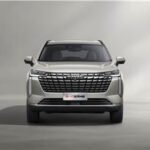Nio, a prominent electric vehicle (EV) maker, recently announced the completion of its highway battery swap network in China, with 1,000 battery swap stations now operational along the country’s highways. This milestone achievement signifies a significant step in Nio’s ongoing efforts to expand its infrastructure and provide reliable services to its customers.
The 1,000th highway battery swap station was officially inaugurated at the Fushan service area on the G5011 Wuhu-Hefei Highway. This development is part of Nio’s broader initiative to establish a comprehensive battery swap network connecting major cities in China, spanning across 550 cities. By doing so, Nio aims to eliminate range anxiety for both Nio and Onvo brand owners while traveling on highways.
In addition to the highway battery swap stations, Nio currently operates a total of 3,399 battery swap stations across China, having delivered an impressive cumulative total of 79 million battery swap services. Moreover, the company also boasts 2,883 supercharging stations with 13,311 chargers and 1,776 destination charging stations providing 13,390 charging stalls.
Notably, Nio is not limiting its expansion efforts to China alone. The company has already established 60 battery swap stations in Europe, demonstrating its commitment to providing convenient and efficient services to customers globally.
The introduction of battery swap stations on highways plays a crucial role in alleviating range anxiety for drivers, particularly during long-distance journeys and peak travel periods such as holidays. These stations offer a convenient solution for EV owners, ensuring they can easily access battery swap services whenever needed.
It is important to note that the current network of battery swap stations is exclusively available for Nio main brand and Onvo sub-brand vehicles. However, vehicles from Nio’s Firefly sub-brand will gain access to the network once Nio launches its fifth-generation battery swap station next year.
While Nio has announced various battery swap partnerships in the past year, the company’s automotive partners have yet to introduce models based on Nio’s standards. Despite this, Nio remains focused on providing high-quality exclusive services to its users, even though this may lead to lower utilization rates.
In light of recent policy changes, EV makers are now required to open their self-built high-power charging facility networks to all brands without discrimination. This move aims to promote fair competition and accessibility within the EV charging infrastructure market.
Overall, Nio’s milestone achievement of reaching 1,000 battery swap stations along China’s highways reflects the company’s dedication to innovation and customer satisfaction. By expanding its network and enhancing its services, Nio continues to solidify its position as a leader in the EV industry.







